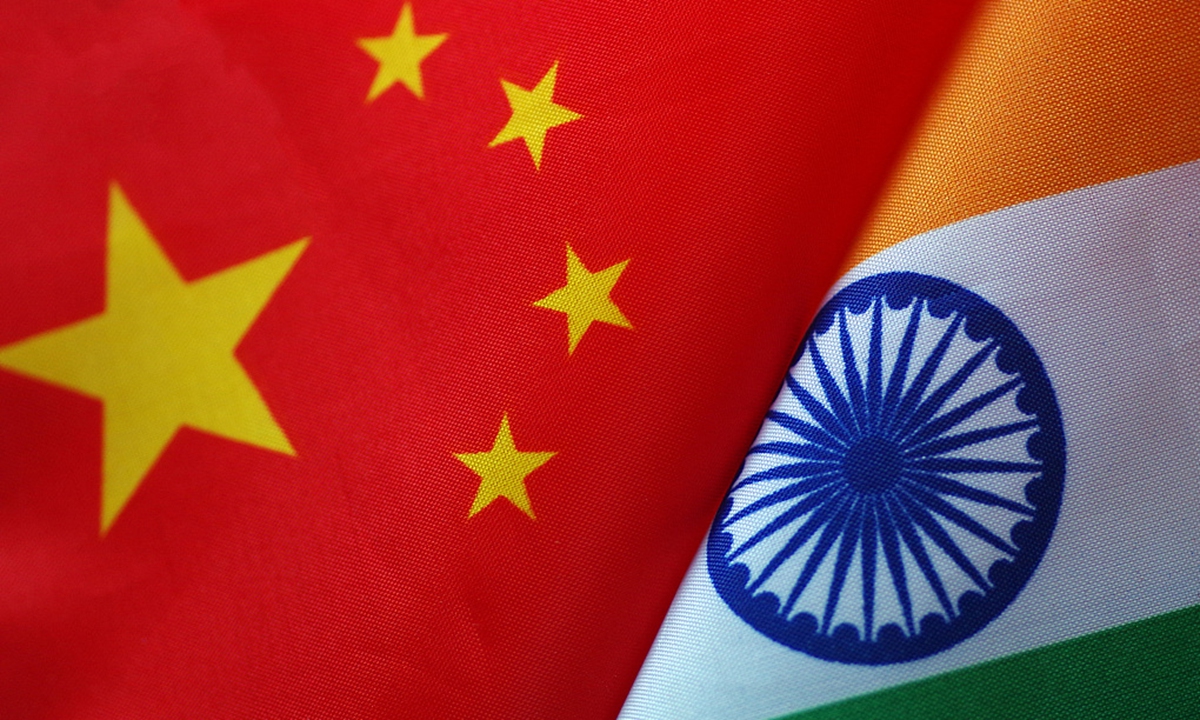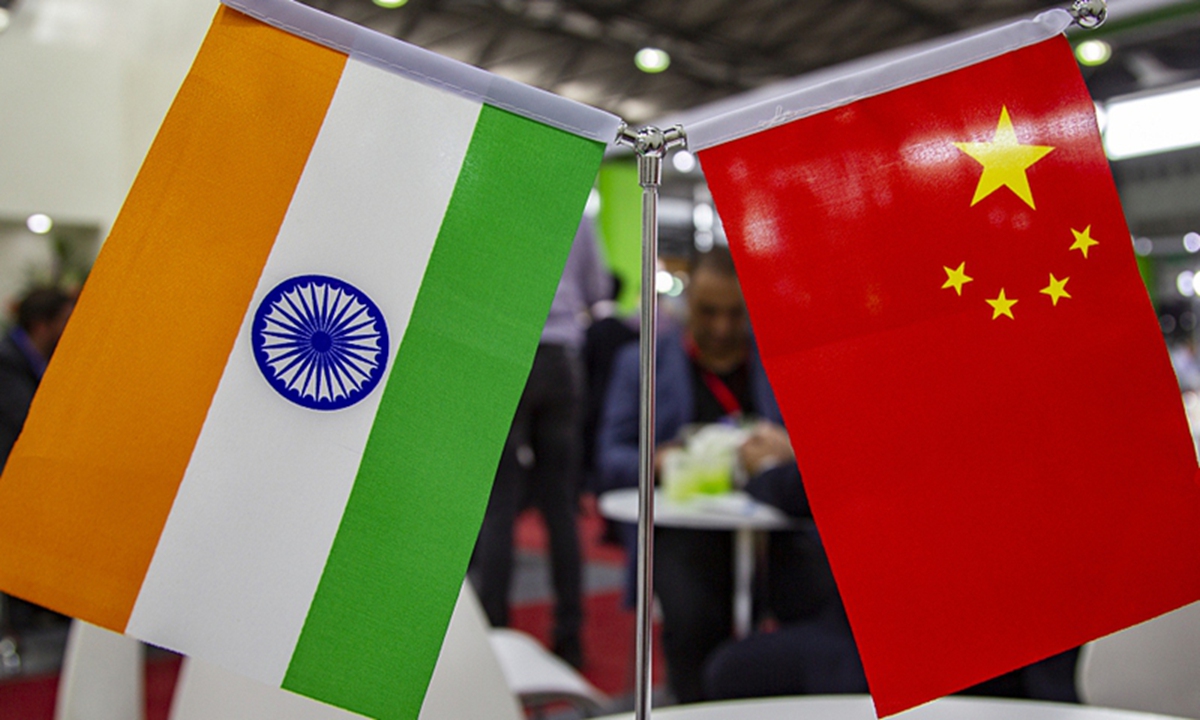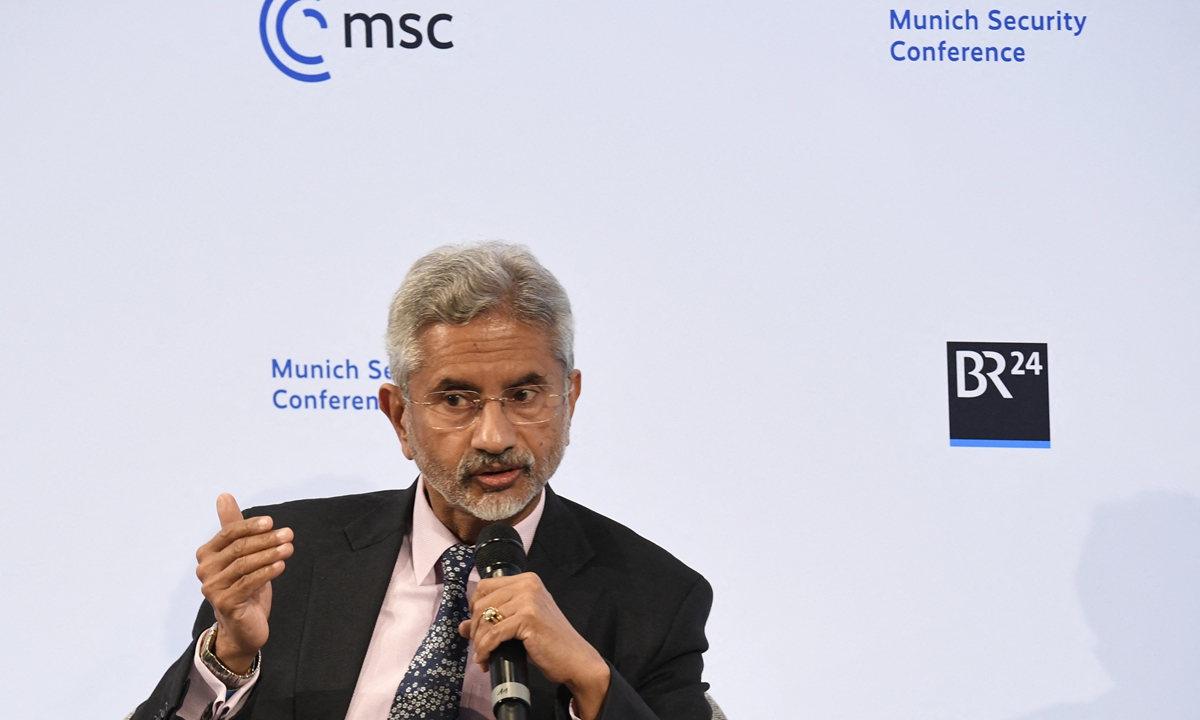Chinese ambassador to India revisits Chennai to follow up summit's spirit; bilateral relations 'have opportunities for breakthrough'

Photo: VCG
In a sharp slap in the face to the West, which attempts to drive a wedge between China and India by piling pressure on New Delhi to take a tough stance against Moscow with the hypothesis that the country may face "similar challenges" from China in the future, Indian Foreign Minister Subrahmanyam Jaishankar outlined the country's position by emphasizing that China-India relations have nothing to do with the Russia-Ukraine conflict and India is capable of managing its ties with Beijing.
At the GLOBSEC 2022 Bratislava Forum on Friday, Jaishankar slammed Europe saying that the continent has to grow out of the mindset that its problems are the world's problems but the world's problems are not Europe's problems.
When asked about if India would join the US-led clique or China, Jaishankar said that he does not think it is necessary for India to join any side and India is entitled to make its own choices which will be a balance of its values and interests, local media reported.
Jaishankar's remarks showcased a rational voice in the complex international situation and once again proved that China and India, two mature neighbors, are capable of managing their conflicts through contacts and dialogue and there is no room for any country to point a finger, Qian Feng, director of the research department at the National Strategy Institute at Tsinghua University, told the Global Times on Sunday.
Since taking office, Jaishankar has taken a relatively tough stance on China-related topics. He tried to take advantage of international forces to pressure China to force Beijing to concede.
But with the emergence of geopolitical disputes in the West, especially in Europe, India gradually realized that the US and the European Union had failed to properly handle the geopolitical crisis and also triggered the war. India does not want a war or a similar crisis in its neighborhood. Jaishankar's latest statements can be seen as India's attempt to signal its stance on China by hitting out at Europe, analysts said.
Jaishankar's comments also came after Indian Prime Minister Narendra Modi once again dodged an invitation by US President Joe Biden to openly criticize Russia at their bilateral meeting, shortly after the summit of the Quad in Tokyo on May 25.
Analysts said it reflected the strong independence of India's diplomacy which put India's national interest as the top priority.
Indians could feel the arrogance and sense of superiority of the West and they hate it. Despite the disputes with China, India wants to deal with them in accordance with its national interest rather than escalating and complicating bilateral tensions by letting in a third party, Long Xingchun, President of the Chengdu Institute of World Affairs, told the Global Times.
India shares many more common interests in global issues with China than with Western countries. The West does not respect India's national interests or sentiment, but only wants to use it with a sense of superiority, Long said.
While Jaishankar was on his visit to the Czech Republic and Slovakia, in a first visit in two years since COVID-19 ravaged India, Chinese Ambassador to India, Sun Weidong, went to the state of Tamil Nadu and Pondicherry, from May 29 to June 2.
Sun first paid a visit to the city of Chennai where Chinese President Xi Jinping met with Indian Prime Minister Narendra Modi at the second India-China Informal Summit in October 2019.
According to the Chinese Embassy, the ambassador had in-depth exchanges and friendly interactions with people from all walks of life in the region and gained a deeper understanding of regional economic and social development. During the trip Sun visited the headquarter of India's mainstream media, The Hindu, the State Industries Promotion Corporation of Tamil Nadu Industrial Park, the home of a young Indian employee of a Chinese company, and the Xu Fancheng Culture Study Center.
Experts pointed out that the two top leaders' talks in Chennai in 2019 had set a key milestone for the two nations to enhance strategic communication, expand cooperation, deepen mutual trust and build mutual understanding, and the ambassador's trip shows China's aspirations to resolve differences and promote cooperation with India.
The state of Tamil Nadu is more open and friendly to China, compared with the northern states where there are direct border disputes, and can play a positive leading role in promoting China-India cooperation, Long said.
Ambassador Sun's trip highlighted that China and India do not pose threats to each other but offer mutual development opportunities, the expert said.
Echoing Long, Qian said that Sun's visit showed that China and India still share a deep cooperation foundation and friendship despite the border dispute, disproving the claim of India's anti-China forces that there is a nationwide hatred toward China in India because of the Galwan Valley conflict in June, 2020.
On May 31, China and India held the 24th Meeting of the Working Mechanism for Consultation and Coordination on China-India Border Affairs via video link. The two sides agreed to further ease up and cool down tensions and committed to holding the 16th round of Corps Commanders Level Meeting at an early date to deal with the outstanding issues about the western section of the boundary under the principle of mutual and equal security.
In March, Chinese State Councilor and Foreign Minister, Wang Yi, said during a visit in New Delhi - the highest-level Chinese official to visit India since the border clashes at the Galwan Valley - that China and India, two major developing countries and emerging economies, should stick to their own development paths and join hands to safeguard peace and stability in the region and the world.
The two sides should place the border issue in a proper position in bilateral relations and manage conflicts to facilitate the development of relations, Wang said, proposing a three-point approach to achieving that end, adding that both sides should view bilateral relations with a long-term vision, see each other's development with a win-win mentality and take part in the multilateral process with a cooperative posture.
China hopes to manage differences and seek cooperation with India, however, there are still many old contradictions and new problems between both countries, Qian said.
It is not in the fundamental interests of the two sides for China-India relations to linger at a low level. The more challenges they face the more important it is for the two countries to attach importance to high-level communication in various fields, Qian said.
Experts stressed that China and India share similar positions on major international and regional issues and should strive to understand and support each other. They believed that the two countries have an opportunity for a breakthrough in bilateral ties.



